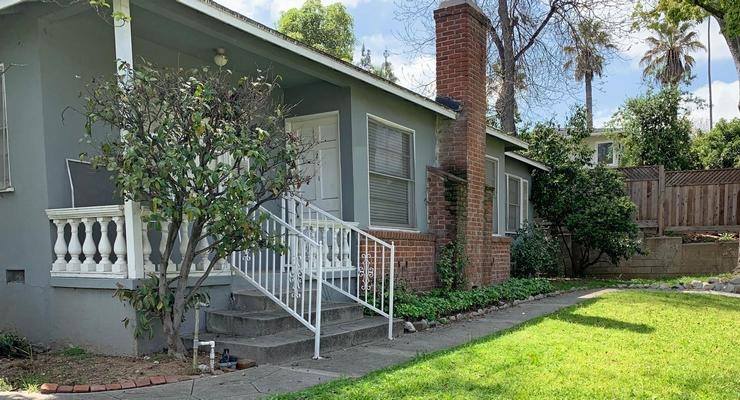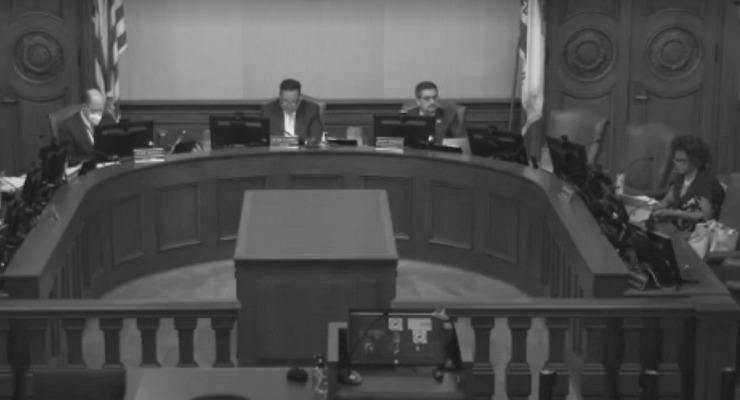
A bill that would have changed the order of sale for houses owned by Caltrans in the 710 Corridor and eliminated Caltrans’ higher, inflation-adjusted sales price for low- and moderate-income tenants but not higher earners, passed the Assembly but was not taken up in time by the state Senate before the legislative session deadline Monday.
Authored by state Sen. Maria Elena Durazo (D-El Sereno), Senate Bill 9 would have given present tenants of five or more years the opportunity to buy the property before it is offered to a housing-related entity (HRE), rather than the other way around.
According to analysis of the bill, “While promulgating regulations for the sale of these properties, Caltrans determined it was legally obligated to adjust its original purchase prices for inflation to determine a minimum sales price for affordable sales. This inflation-adjusted minimum was sometimes above what a tenant could actually afford. However, this adjustment was not described in the [Roberti Bill, the existing state law about the sale of these houses] and, in a 2018 lawsuit brought by some affordable price buyers, the court ruled this adjustment was an unenforceable underground regulation.”
According to Durazo, SB 9 would have focused on “expanding and preserving affordability for all these properties while protecting the rights of tenants. This bill will move ownership away from Caltrans, secure long-term affordability, and create more affordable options in the corridor, while ensuring current Caltrans tenants are protected by rules on affordable housing and increasing the number of affordable housing units.”
But Pasadena attorney Christopher Sutton and several tenants argued that the bill would have done more harm than good. Sutton said the bill would have resulted in the displacement of about 100 existing tenant families in Caltrans residential properties in Pasadena, South Pasadena, and El Sereno who make more than 120 percent of area median income (AMI).
“If an existing family’s income is above 120 percent of AMI, they will be evicted to make way for new tenants under 120 percent of AMI [if SB 9 had passed],” Sutton wrote in an email to tenants. “Such differences should not lead to displacements. SB 9 allows Caltrans to penalize existing tenant families by labeling them ‘not in good standing,’ as Caltrans has done repeatedly for arbitrary and retaliatory reasons. It eliminates the existing priority for tenant-controlled limited equity housing cooperatives in existing law.”
However, while SB 9 was approved unanimously by the Assembly at 11:01 p.m. on Monday, the deadline for this year’s legislative session, it was not sent to the Senate until 11:40 p.m. and wasn’t taken up for consideration before midnight. At that point, Minority Leader Shannon Grove (R-Bakersfield) objected to any further bills not specifically allowed by the California Constitution, such as urgent matters and tax measures. SB 9 was not one of them, essentially rendering the bill moot until next year.
Several factors led to the delay, Sutton said. The bill originally applied only to tenants and houses in El Sereno, but recent amendments expanded its reach to Pasadena and South Pasadena as well.
Durazo also recently added provisions to the bill amending the Surplus Land Act, which “seem to be special favors for some land developer,” Sutton said. “SB 9 was also recently cross-linked to SB 1030, which itself is linked to many other bills. This ‘log rolling’ prevents a legislator from voting against any one of eight bills without endangering them all: the Democrats’ affordable housing package of bills. It also ties the governor’s hands in terms of any selective vetoes. It is all or nothing. This is slimy political manipulation of the worse kind.”
He added that “every second of delay culminated in SB 9 just missing the constitutional midnight deadline in the Senate,” which was welcome news to the United Caltrans Tenants (UCT) advocacy group and the tenants it represents. UCT recently launched a public relations campaign to rally opposition to the legislation.
Sutton is calling for a permanent guarantee of no displacement of any existing Caltrans tenants, the automatic legislative designation of “tenant in good standing” for any family in occupancy in a 710 Corridor Caltrans property as of July 1, 2020, and a fixed deadline to sell all the Caltrans properties in the 710 Corridor in all three cities.
“Tenants made decisions, not just for years but for decades, based on the promise of the Roberti Bill,” said one Caltrans tenant, who asked to remain anonymous for fear of retaliation from Caltrans. “If the recent changes Caltrans and the state are attempting to make [in SB 9] were made back then, many tenants would not have bothered putting up with the terrible treatment and poor conditions in the homes they were renting. They would have found housing elsewhere. So how is it fair that after putting up with all of this for so many years, they have the rug pulled out from under them at the 11th hour? If we cannot rely on the state to be fair and honest with their constituents, then who can we rely on?
“If they want to make changes, they should not be retroactive and should only apply to any new tenants who are told up front what the conditions of purchase will be, so that they can make an informed decision as to whether they want to put up with Caltrans. This is extremely unfair, and it seems to me, breaking a contract. Changing anything retroactively is just plain wrong.”
The 710 tunnel has been dead for almost two years, if not longer, and yet there still has been no progress from Caltrans on the sale of the houses. The COVID-19 pandemic will likely delay the process even longer than it otherwise would have been.
UCT is encouraging tenants to write to Caltrans’ leadership and the governor to demand that they declare the houses as surplus (because they are no longer needed to tear down to make way for tunnel construction) and thus offer the houses for sale as required by state law.
Last November, Caltrans District 7 Director John Bulinski publicly blamed the delay on the ongoing lawsuit against the agency by Sutton on behalf of three tenants. That suit is an effort by the tenants to force Caltrans to sell their houses to them at the original purchase price as guaranteed by state law. After Caltrans tried to implement an “inflation-adjusted price” higher than the affordable price required by state law, a judge ordered Caltrans to follow the law in 2019 and sell the houses at the original purchase price. Caltrans went around that order by creating “emergency regulations,” which were approved by the state Office of Administrative Law, so Sutton sued the agency.
While those emergency regulations regarding the inflation-adjusted price have expired, tenants still have not been offered the opportunity to purchase their homes, let alone at the price guaranteed by state law. Last month, Caltrans’ attorneys filed an ex parte motion with the Superior Court to have the trial date of Oct. 20 postponed pending the passage of SB 9. Sutton and his clients declined the request.














 0 comments
0 comments


